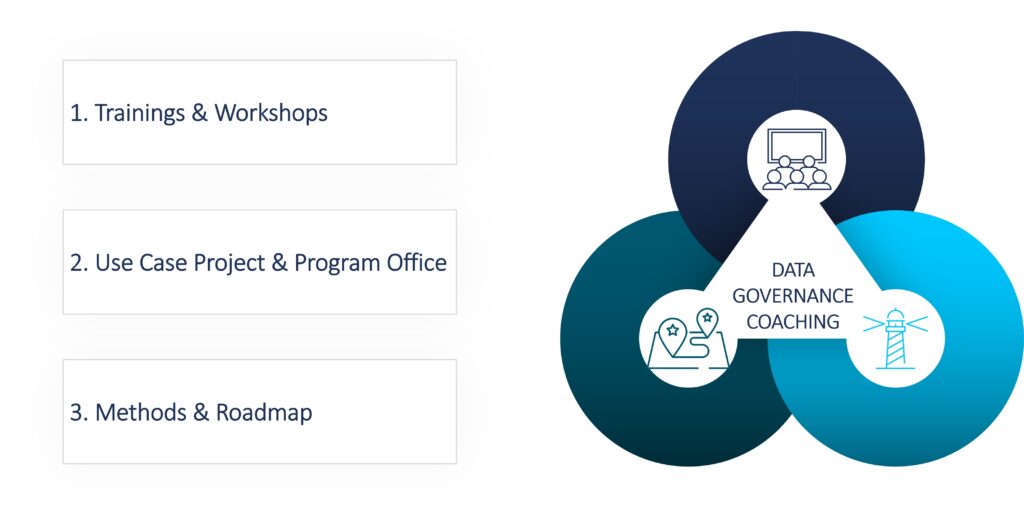
Product Excellence Through Modern PLM in Fast-Paced Markets
Modern PLM systems empower businesses to achieve product excellence in fast-paced markets by enhancing collaboration, agility and innovation.

Dive into the narrative of a data manager unraveling the complexities of data governance in a forward-thinking company. With ongoing support and comprehensive training, each day’s challenges become a stepping stone toward the company’s goal of leveraging data for strategic decision-making. In this blog post, we share the experiences of a new data manager and highlight a structured approach to data governance coaching.
As a new employee of a company that is moving towards becoming data-driven, the intricacies of data management and its role in shaping business decisions are becoming clearer every day. Companies are increasingly recognizing the importance of reliable data for informed decision-making. At the heart of this transformation are individuals like me, new data managers tasked with overseeing specific data domains within the enterprise.
The foundational element of this data-driven shift lies in the role concept, a framework that identifies and nominates data managers based on their skills, knowledge, and passion for data. Despite their different expertise and company affiliations, this group has a common goal – to ensure high-quality data within their respective responsibility areas. Tackling an initial use case within our data domain is crucial to embark on this journey successfully.
These use cases vary widely and range from the definition of essential data objects such as cost centers to the implementation of specific projects like CO2 reporting. The focus is not just on completing tasks but on elevating data quality to its optimal level, aligning it seamlessly with business processes, and methodically incorporating these improvements.
To support us in our newfound roles, the company has outlined a comprehensive approach that is divided into three key areas of responsibility:

Our first task involves professional training, ensuring that data managers uniformly understand their roles and can contribute value in the broader corporate context. This training is essential in equipping us with the necessary skills to navigate the complexities of data management effectively.
The second task area focuses on defining use cases within our data domains and ensuring their consistent and efficient implementation. This step is pivotal in bridging the gap between theory and practice, allowing us to apply our knowledge to real-world scenarios and contribute tangibly to the company’s data objectives.
In the third task area, we receive support through methods, examples, and templates, providing practical tools for effective data management. A roadmap is laid out, guiding us through the next steps in our roles and ensuring a structured approach to our responsibilities.
Reflecting on past data governance rollouts, several insights have surfaced, shaping the strategy for onboarding new data managers:
With these insights in mind and the structured project approach, the company successfully operationalizes data managers, marking a critical step towards becoming a data-driven enterprise.
The narrative of a data manager’s journey in a forward-thinking company emphasizes continuous growth through data governance coaching. A comprehensive approach, including training, use case implementation, and ongoing support, is successfully operationalizing data managers. Past insights stress the importance of the close link between business processes and data management, the seamless identification of data managers, the operational-level conceptualization, and the recognition of varied data domains. This strategic approach propels the company towards its goal of becoming data-driven and facilitating strategic decision-making.

Modern PLM systems empower businesses to achieve product excellence in fast-paced markets by enhancing collaboration, agility and innovation.

Read how the Campaign Planner & Designer (CPD) helps you to manage supply chain variability.

Explore automated production planning with our Campaign Planner & Designer.

The pharma market trends impact logistics with a shift to smaller, higher-value shipments and new temperature requirements.
© Camelot Management Consultants, Part of Accenture